Money recognition Coins Worksheets for Ages 6-7
5 filtered results
-
From - To
Discover our comprehensive "Money Recognition Coins Worksheets" designed for children aged 6-7! These engaging activities help young learners develop essential skills in identifying and counting coins. With interactive exercises tailored to spark curiosity and boost confidence, children will explore various coin values, practice sorting, and enhance computational skills. Our worksheets are perfect for both classroom settings and at-home learning, making currency concepts fun and approachable. Through colorful illustrations and easy-to-follow instructions, your child will gain a solid foundation in money recognition while enjoying the learning process. Dive into the world of coins and watch your young mathematician thrive!
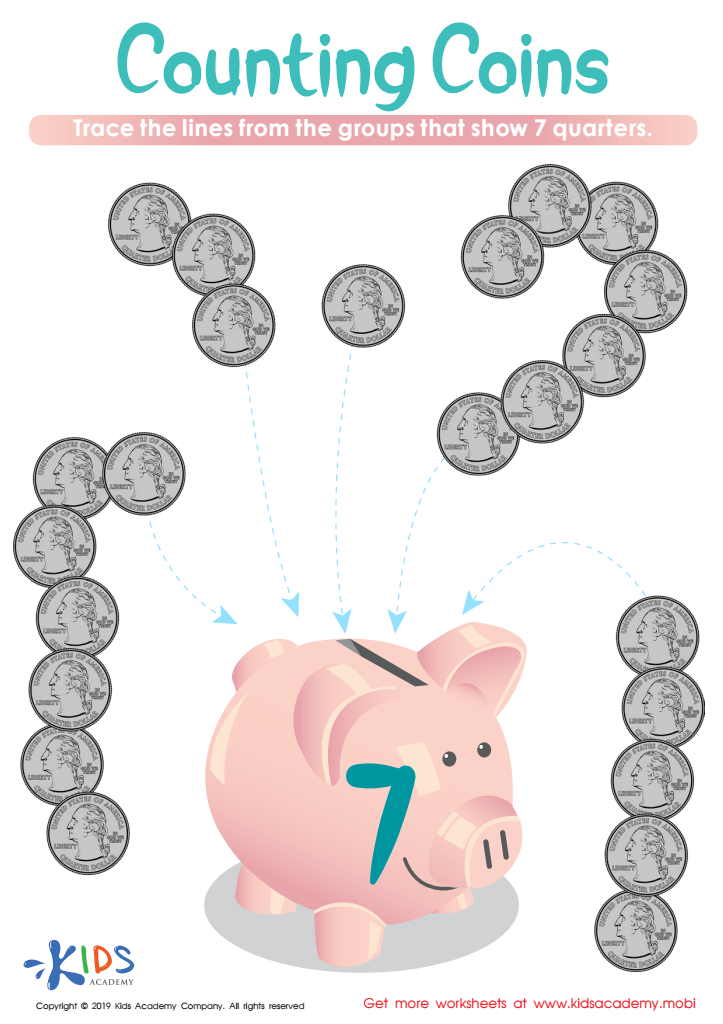

Counting Coins Worksheet
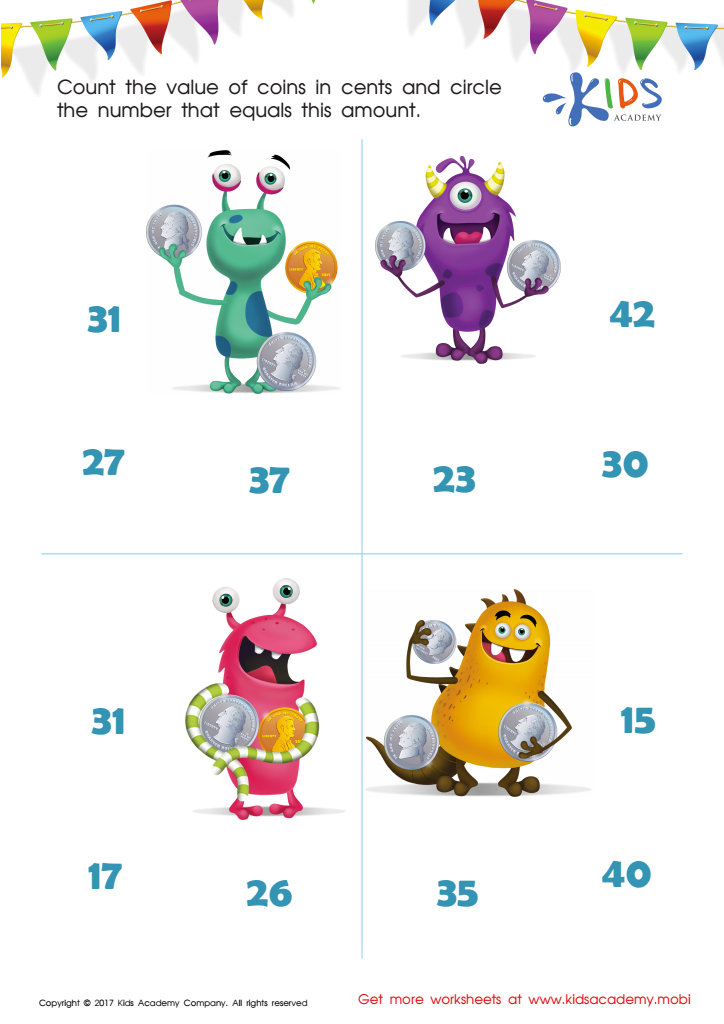

How Many Coins Money Worksheet
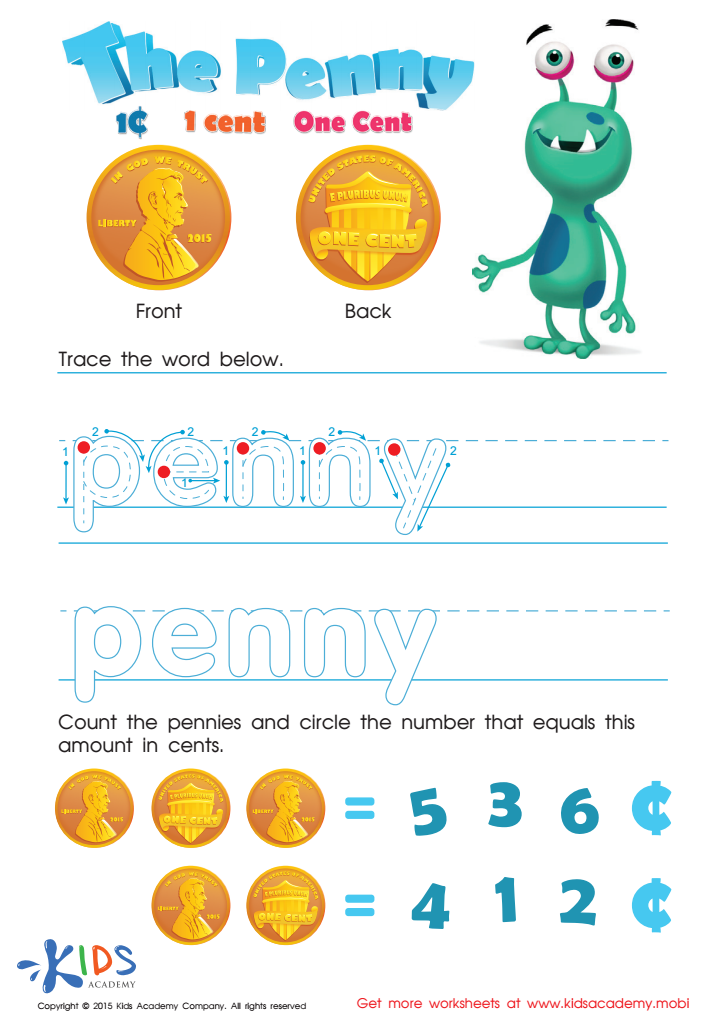

One Cent or the Penny Money Worksheet
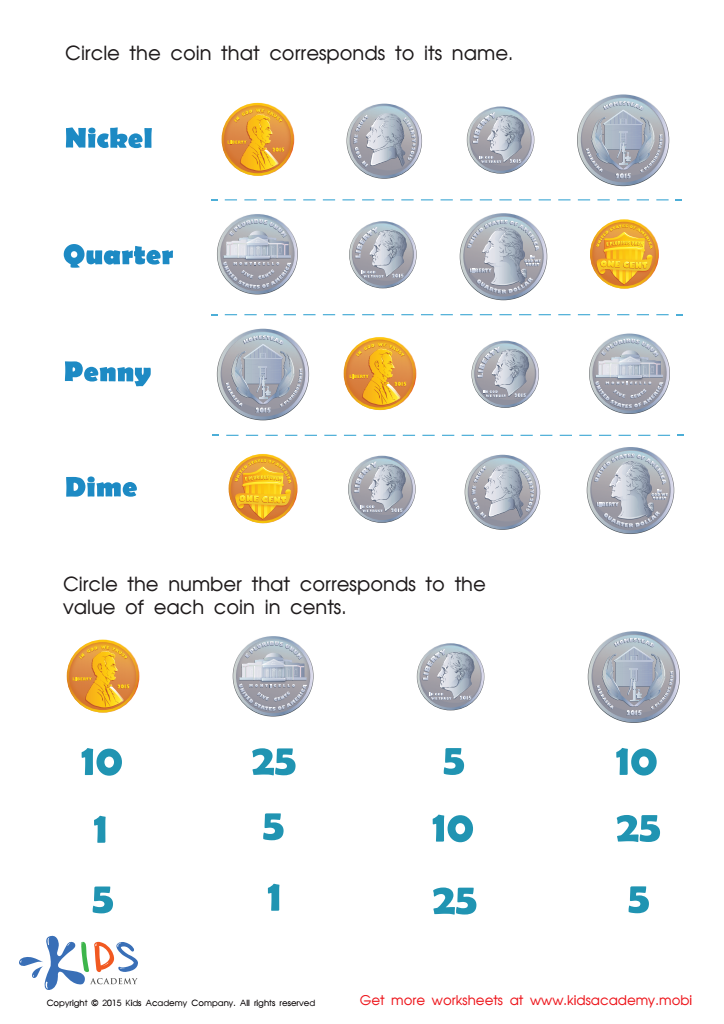

Coin Names and Values Money Worksheet
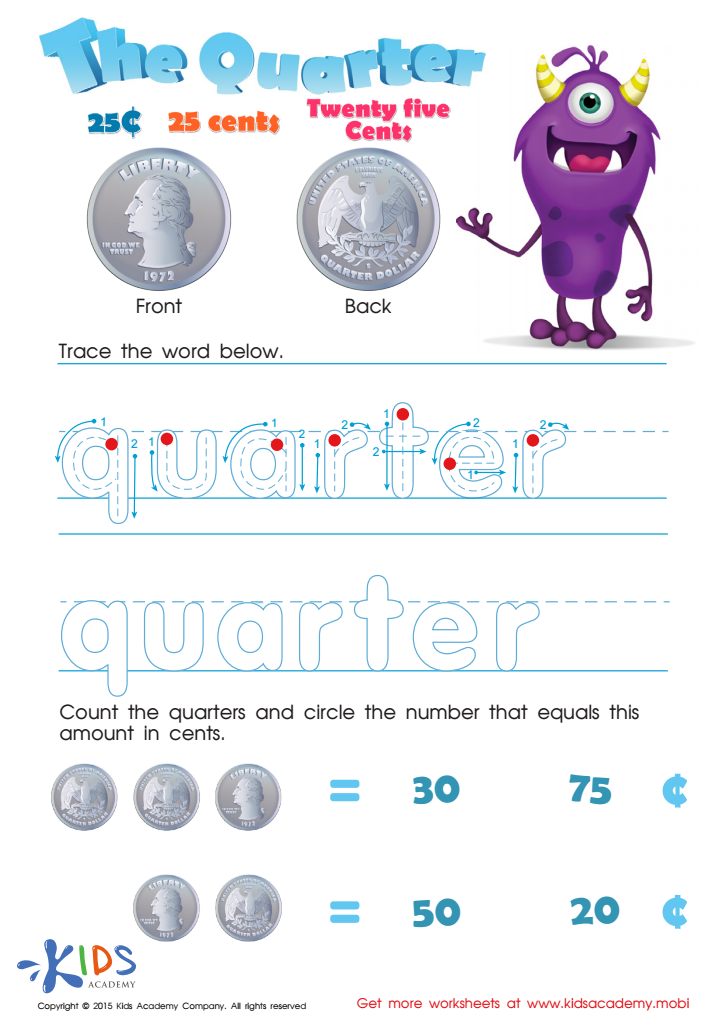

Twenty Five Cents or the Quarter Money Worksheet
Understanding money recognition, particularly coins, is crucial for children aged 6-7 as it lays the foundational skills for financial literacy. At this age, children are often exposed to money through everyday interactions—whether through shopping trips, allowance, or simple transactions. Recognizing coins helps them understand value, make change, and develop basic counting skills.
Learning about money nurtures children’s math abilities, enhancing their confidence in handling numbers and calculations. Coin recognition also ties into real-world problem-solving by preparing them for future scenarios involving budgeting or saving.
Moreover, instilling a foundational understanding of money early on can shape a child’s attitude towards financial responsibility later in life. Parents and teachers play a pivotal role by creating engaging activities, such as coin sorting or pretend play involving stores.
These not only make learning fun but also reinforce these essential concepts through practical application. As children gain proficiency in recognizing and handling money, they enhance their decision-making skills and develop independence in managing their finances. This preparedness fosters an understanding of economic principles that benefit them beyond childhood, ultimately promoting informed citizenship in a consumer-driven society.

 Assign to My Students
Assign to My Students





















